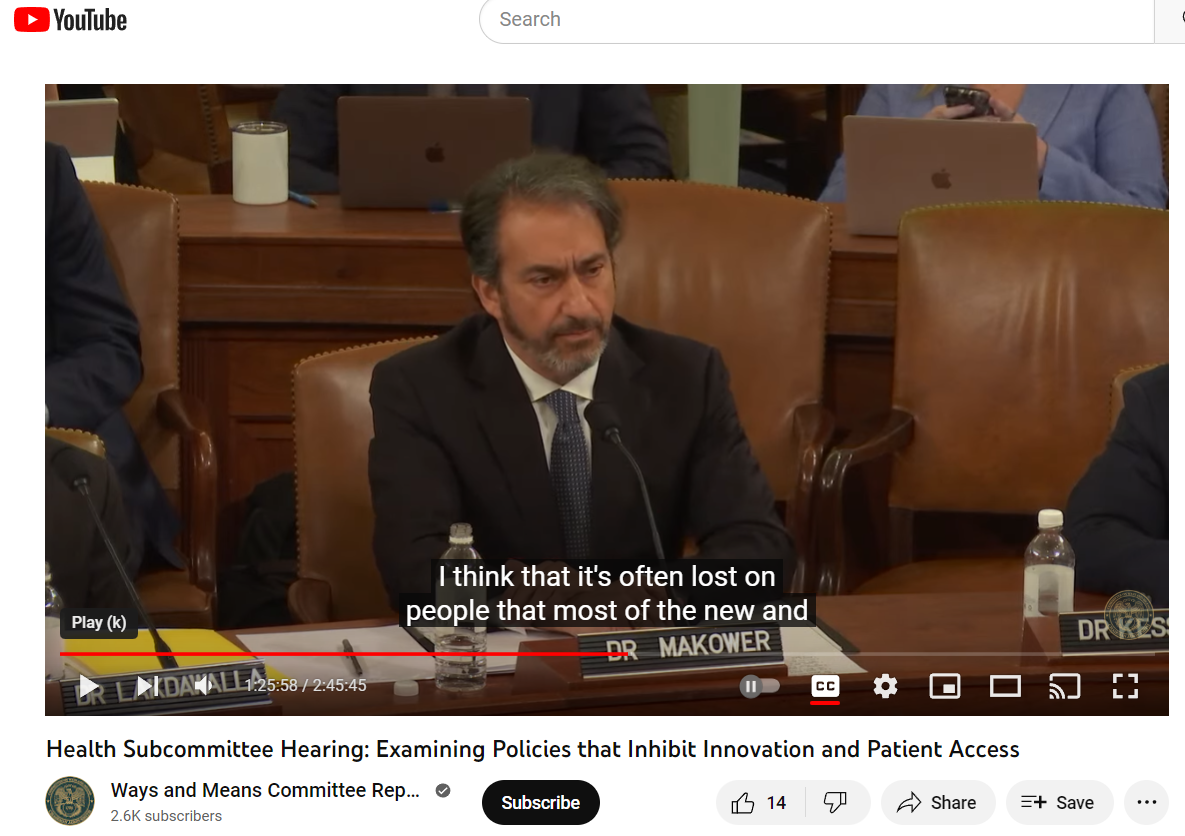On May 10, 2023, the House Ways and Means committee, Health subcommittee, held a 3-hour hearing on policy barriers to health innovation.
Find the online video at YouTube here:
https://www.youtube.com/watch?v=_Evwt5DNbjo
And I've put a 40-page, 25000 word transcript in the cloud here:
https://docs.google.com/document/d/1j2-qksZN7qWCh6HIYD5gPo9nBvcml-un/edit?usp=sharing&ouid=110053226805181888143&rtpof=true&sd=true
ADDED MAY 20: Jason Shafrin publishes GPT summaries of those witness testimonies - here.
There were criticism of drug companies "gaming" the 340B and patent systems, but also much criticism of CMMI proposals to cut prices of accelerated approval drugs, and IRA for limiting reimbursement esp. for new indications.
Numerous speakers bemoaned the loss of MCIT and want it brought back, or at least something comparable, by legislation if needed. The need for legislation for prescription digital therapeutics was noted.
Dr. Kesselheim of Harvard said there were too-many me-too drugs with no clinical advantage yet heavy advertising and high price points. One of the congressmen, a doctor, noted that 50 different patients might respond differently to 50 drugs. He criticized the German (AMNOG) system that sets prices of new drugs even as low as generic drugs if there is no advantage.
Thanks to a colleague who provided this GPT4 summary in bullet points:
1. The government should foster an environment that promotes innovation and patient access to innovative care.
2. Recent examples of government getting in the way include CMS restrictive coverage mandates, CMMI considering changes to cover for Part B drugs [in-development ideas to cut price of accel. approval drugs], and USTR [US Trade Representative] waiver of critical IP protection for COVID vaccine.
3. Regulatory systems should work well to encourage innovation while balancing risk and reward.
4. The Independent Payment Advisory Board (IPAB) was a concern for many witnesses as it could limit access to innovative treatments.
5. The Innovation Center at CMS [CMMI] has the potential to promote value-based care but needs more transparency and accountability.
6. The FDA’s accelerated approval process is important for patients with serious or life-threatening conditions but needs better communication with payers and providers.
7. Intellectual property protections are crucial for incentivizing innovation in drug development.
8. Medicare reimbursement policies should be updated to reflect the value of new treatments and technologies. [USC talked about a new value system called GRACE]. [*]
9. Telehealth has great potential for improving patient access but requires regulatory changes to be fully realized.
10. Collaboration between stakeholders, including patients, providers, payers, and policymakers, is essential for promoting innovation and improving patient outcomes.
